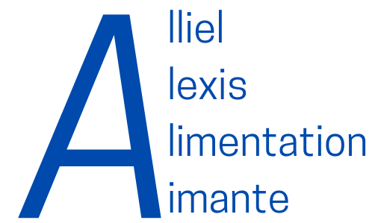Can You Really Recover from an Eating Disorder After 10 Years?
When you've battled an eating disorder for a decade, hope can feel like a distant memory. Yet groundbreaking research from 2025 brings a crucial message: recovery remains possible, even after 10, 15, or 20 years of illness.
Scientific Evidence That Restores Hope
A meta-analysis published in January 2025 in the International Journal of Eating Disorders reveals encouraging data:
65% of patients with EDs lasting over 10 years achieve full remission with appropriate treatment
82% experience significant quality of life improvements
The brain maintains neuroplasticity, enabling new neural pathways even after years of illness
Understanding Chronicity to Overcome It
Chronic EDs aren't a life sentence. They often reflect:
Past inadequate or insufficient treatments
Undiagnosed comorbidities (ADHD, anxiety disorders, trauma)
Lack of multidisciplinary approach
Insufficient social support systems
The 5 Pillars of Chronic ED Recovery
1. Enhanced Multidisciplinary Approach
In Paris, specialized centers have developed specific protocols combining:
Intensive behavioral nutrition counseling
Specialized psychotherapy (CBT, EMDR for associated trauma)
Psychiatric support when needed
Body-based therapies (psychomotor therapy, therapeutic yoga)
2. Adapted and Progressive Refeeding
Contrary to common beliefs, refeeding after 10 years requires:
Even gentler progression to avoid refeeding syndrome
Early integration of pleasure foods to rebuild positive relationships
Pressure-free dietary diversification work
Respect for each patient's individual pace
3. Identity Work Beyond the ED
After a decade, the disorder may feel like part of your identity. It's essential to:
Explore who you are outside the illness
Develop new interests and passions
Rebuild healthy social relationships
Rediscover motivating life projects
4. Managing Relapses as Part of the Process
Relapses aren't failures but learning opportunities:
Identify specific triggers
Adjust coping strategies
Strengthen support networks
Celebrate every small victory
5. Hope as a Therapeutic Engine
Testimonials from patients recovered after 10+ years share this common thread: rediscovering hope. This hope feeds on:
Meeting other recovered individuals
Discovering new treatments
Daily small victories
Unconditional support from the care team
Testimonial: "I Recovered After 15 Years of Anorexia"
"I'm Sarah, 35 years old. My anorexia began at 13. For 15 years, I cycled through hospitalizations, relapses, despair. What changed? Finally meeting a team that believed in my recovery. Today, I eat with pleasure, have a family, fulfilling work. The journey was long, but every effort was worth it."*
2025 Therapeutic Innovations
Emerging approaches offer new perspectives:
Neurofeedback to reprogram brain circuits
Assisted therapies (MDMA in clinical settings for trauma)
Virtual reality for progressive exposure
Microbiome : ED-specific probiotics
First Steps Toward Recovery
If you're struggling with a chronic ED:
Consult a specialist trained in long-term EDs
Evaluate past treatments to identify what didn't work
Explore new approaches without discouragement
Connect with the recovery community
Celebrate every progress, however small
The Essential Message
Your ED's duration doesn't determine your ability to recover. Your brain, body, and spirit retain remarkable transformation potential. With the right support, recovery isn't just possible: it's waiting for you.
As a dietitian specializing in chronic ED support in Paris, I've witnessed dozens of patients reclaim full lives after more than a decade of illness. If you're ready to explore this possibility, don't hesitate to book an initial consultation.
📚 Hope and Healing: Explore overcoming negativity bias in recovery and discover transdiagnostic approaches. Find support in our family guide.


Vivre et manger sont les deux faces de la même pièce
Lighten your relationship with food and free yourself from what hinders you!
+33 6 22 41 55 21
© 2024. All rights reserved.
RPPS : 10007258733
N° ADELI : 75 95 0878 1
